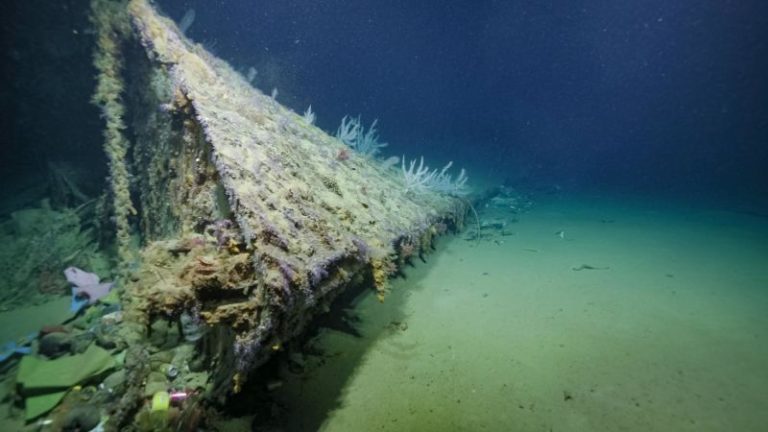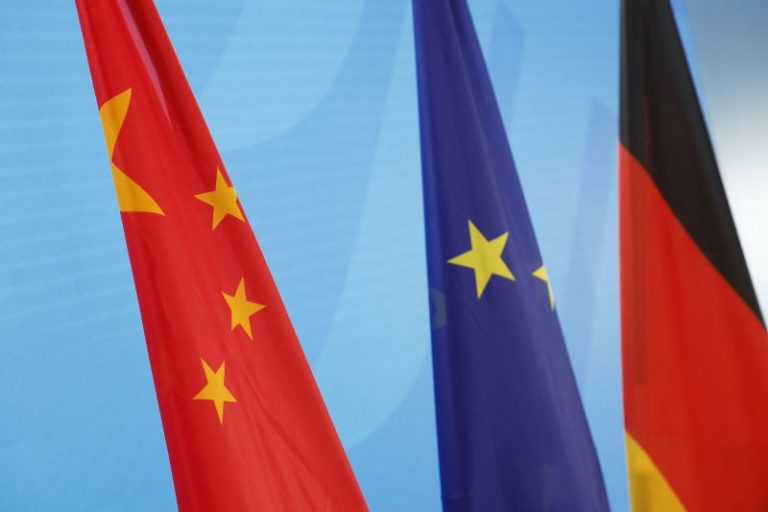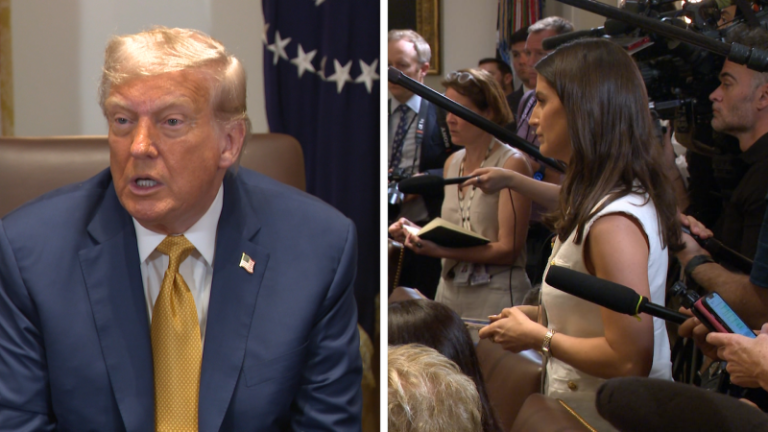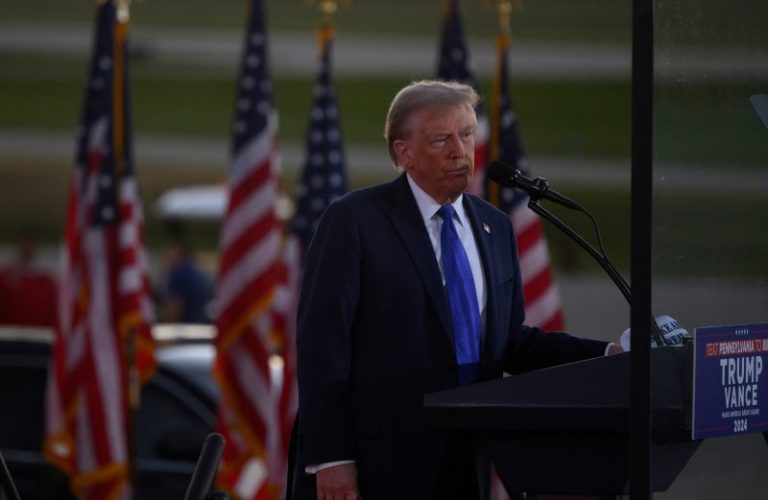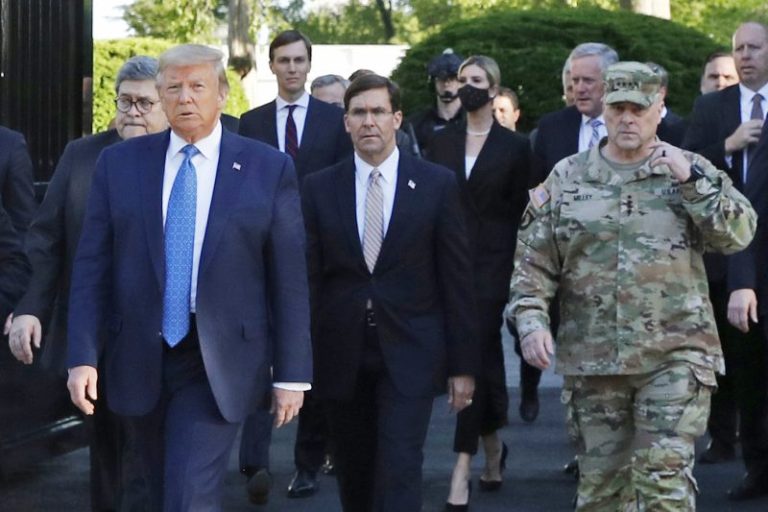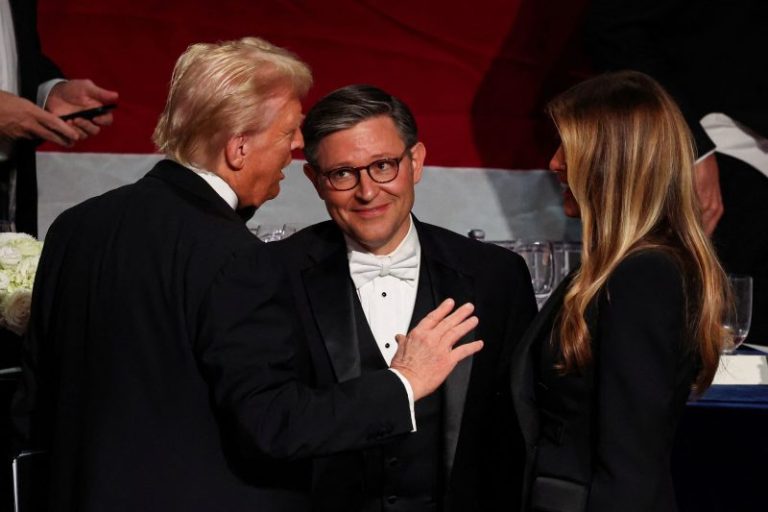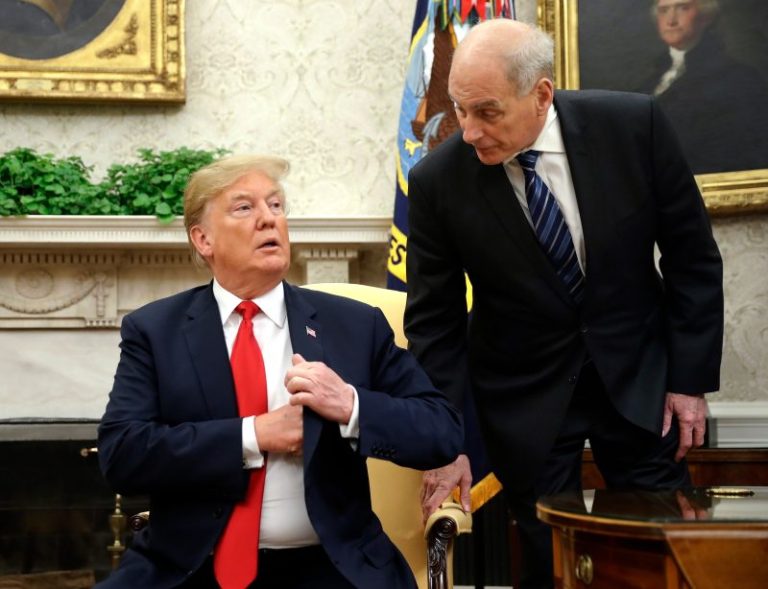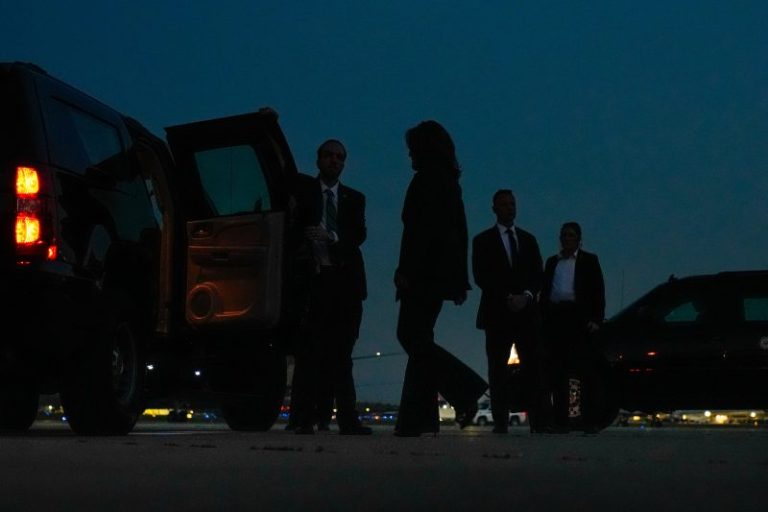For a fleeting moment, Ukraine’s conflict may have come full circle.
In the past 48 hours, US President Donald Trump has perhaps said his most forcefully direct words yet on arming Ukraine. And in the same period, the Kremlin have given their blankest indication to this White House that they are not interested in a realistic, negotiated settlement to the war.
Let us start with Trump’s comments on arming Ukraine, a reversion to a basic bedrock of US foreign policy for decades – opposing Russian aggression. “We’re going to send some more weapons,” the president said Monday of Ukraine. “We have to – they have to be able to defend themselves. They’re getting hit very hard.”
Behind him, his Defense Secretary Pete Hegseth nodded, despite this contradiction of the administration’s announcement days earlier of military shipments being stopped. What did Trump actually mean? He was short on detail.
A Pentagon spokesman later said that “at President Trump’s direction, the Department of Defense is sending additional defensive weapons to Ukraine to ensure the Ukrainians can defend themselves while we work to secure a lasting peace and ensure the killing stops.”
The about-face came days after Volodymyr Zelensky’s call with Trump on Friday, in which the Ukrainian leader said the two men spoke of joint weapons production, and air defense.
Zelensky urgently needs more Patriot interceptor missiles, which are the only way of taking down Russian ballistic missiles, and which only the US can authorize trade in. Trump spoke a day earlier with German Chancellor Friedrich Merz, who has offered to buy Patriots from the US to supply to Ukraine. Enough is afoot to have led Zelensky to declare on Saturday his Trump call was “the best conversation we have had during this whole time, the most productive.”
Trump’s failure to provide details may be strategic, or a by-product of his occasional disdain for them. But while he may sound briefly a little more like his predecessor, Joe Biden, in terms of arming Ukraine, herein lies one stark difference. Biden publicly announced in agonizing detail every capability he gave Kyiv, perhaps hoping the transparency would avoid a sudden unexpected escalation with Moscow.
Instead, Biden ended up with an excruciating public debate with Kyiv about every new system, and arms shipment, during which every seemingly impossible demand – from HIMARS rockets, to tanks, to F-16 fighter jets, to strikes inside Russia by ATACMs – was eventually acceded to. The plain, open ladder of American escalation was laid bare to the Kremlin. Trump perhaps seeks to avoid that by saying less.
But after barely six months in office, Trump finds himself back where Biden always was, after trying almost everything else – cosying up to then criticizing Russian President Vladimir Putin, falling out and making up with Zelensky, and spurning before eventually backing Europe. But the timing of his latest conversion, however enduring, reveals the desperation of this moment in the conflict.
The most recent, record Russian use of drones to attack Kyiv exposed possibly critical shortcomings in the capital’s air defenses. They would only have worsened without being resupplied, at a time when Ukraine has reported 160,000 Russian troops are massing to the north and east of the frontlines. The months ahead will be unpredictable and critical for Kyiv, even with renewed US military support.
Trump’s reversal may have stopped panic edging towards the risk of collapse. Why the shift?
Trump has always tried playing nice with Putin. Patient diplomacy, gentle words, and even last week’s brief pause in military aid – a Kremlin demand for a deal – still did nothing to change Putin’s position. The Kremlin does not want peace. And so Trump has learned slowly, rejecting the travails of recent history, that Russia is an opponent.
The end of the US’ longest war in Afghanistan, in which Biden withdrew fast in the wake of a hasty deal signed by Trump with the Taliban, led to scenes that haunted Trump’s predecessor and remain a potent stick with which Republicans beat Democrats. The repetition of a similar rout of American allies in Ukraine, or Eastern Europe, would be an indelible stain on the Republican or MAGA record. That is not imminent, or even that likely for now. But the seeds of it lie perhaps in any success for Putin’s planned aggression in the coming months.
Meanwhile, after six months of toying with the ideas of diplomacy, the Kremlin is back where it started too: willing to accept a peace only if it is surrender by another name. Its recent goal has been achieved: it has flattered the White House’s belief that it could talk out an end to the war, and taken enough time in talks that Russia’s summer offensive is now adequately manned, and the ground below these troops hard.
As recently as Monday, Putin’s top diplomat was repeating Russia’s most maximalist set of demands. Sergey Lavrov told a Hungarian newspaper that the “underlying causes” of the war must be eliminated, and gave a long, expansive list of impossibles, including the “demilitarization and denazification of Ukraine, lifting sanctions on Russia, rescinding all lawsuits against Russia, and returning the illegally seized Western-based assets.”
He added to that a requirement that Ukraine pledge to never join NATO, and also that occupied Ukrainian territory be recognized as Russian, including parts of Zaporizhzhia and Kherson that Moscow hasn’t even seized yet. It was a dizzying echo of Russia’s demands when it engaged in diplomacy for the first time in Istanbul, in the opening weeks of the war, as its soldiers shot civilians dead in the suburbs of Kyiv.
Putin’s rationale for rejecting real diplomacy is simple. He has sold this war (falsely) as an existential clash between Russia and its traditional values, and a liberal, expansionist and aggressive NATO. It is a binary moment in Russian history, his narrative insists. To entertain a short, albeit deceptive ceasefire on American terms would contradict the urgency of that false story, and risk undermining the skimpy morale of his troops, whose lives his commanders often fritter away in brutal, frontal assaults.
Putin can mollify Trump with talk of his desire for peace. But he cannot let slip the façade of the motherland being under assault. His retreat back to type has been shorter and easier than Trump’s. But still the Kremlin sees the enemy where it always has been, and where it always needs to be, for its war of choice to continue ending the lives of so many Russian men early.
And so, for a brief moment, Putin and Trump find themselves back where Russia and the US were in 2022. Moscow has tens of thousands more troops reportedly amassed to invade Ukraine yet again. Diplomacy seems pointless. Washington needs to help defend Ukraine or risk global embarrassment – the demise of its military hegemony. And Ukraine is still there, in the middle, watching both powers on either side vacillate and spin, yet holding on.
This post appeared first on cnn.com



